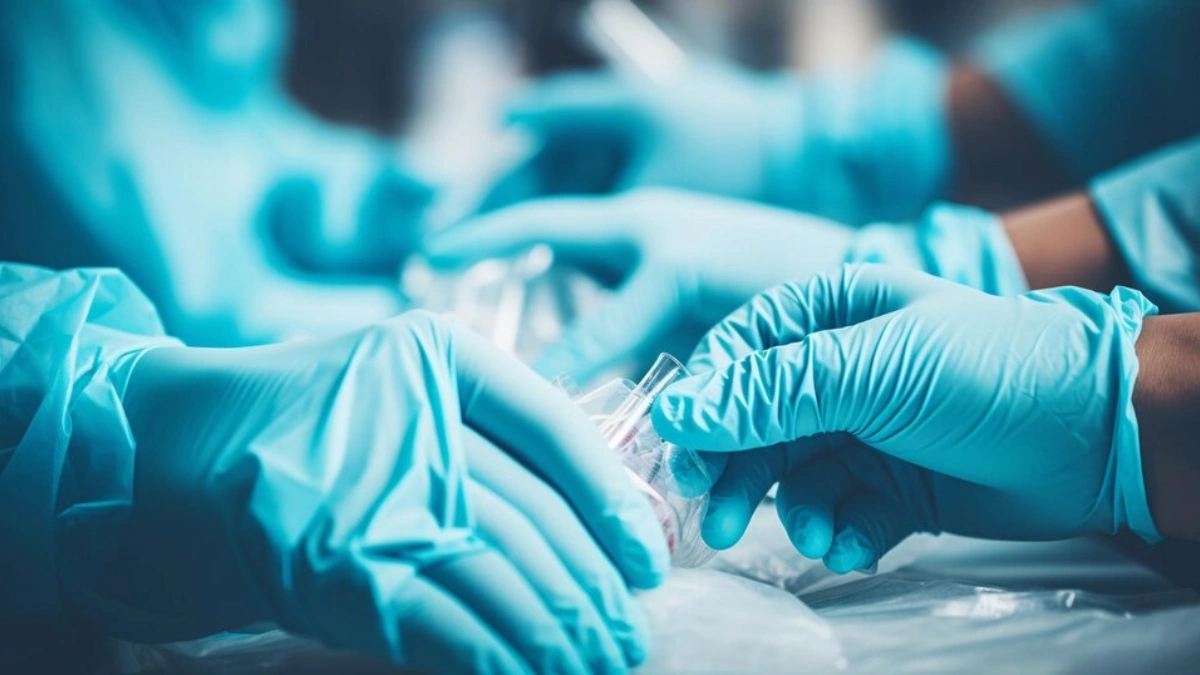The cancer biopsy procedure in Turkey is an advanced and meticulously performed medical intervention aimed at diagnosing cancer with precision and care. Renowned for its state-of-the-art medical facilities, Turkey has emerged as a global hub for diagnostic procedures, including biopsies. These procedures involve collecting tissue or cell samples for laboratory analysis to determine the cancer’s presence, type, and aggressiveness. In this guide, we explore the diverse biopsy techniques, their applications, and the unparalleled advantages of undergoing these procedures in Turkey.
Types of Cancer Biopsy Procedures in Turkey
- Needle Biopsy
- Fine-needle aspiration (FNA): A minimally invasive procedure using a thin needle to extract fluid or cells from a suspicious area.
- Core Needle Biopsy: Employs a larger needle with a cutting tip to obtain a tissue column, providing more comprehensive samples.
- Image-Guided Biopsy: Utilizes CT, MRI, or ultrasound imaging to precisely target internal organs like the liver, lungs, or prostate.
- Endoscopic Biopsy
This involves the insertion of an endoscope—a flexible tube equipped with a light and camera—through natural orifices or small incisions. Examples include:- Bronchoscopy: Examining lung tissues.
- Colonoscopy: Extracting samples from the colon.
- Cystoscopy: Accessing bladder tissues.
- Skin Biopsy
- Shave Biopsy: Removes surface skin layers for testing.
- Punch Biopsy: Utilizes a circular tool to retrieve deeper skin layers.
- Excisional Biopsy: Extracts entire lumps or suspicious skin areas.
- Bone Marrow Biopsy
Commonly used to diagnose blood-related cancers like leukaemia and lymphoma, this procedure involves extracting bone marrow from the hipbone using a long needle. - Surgical Biopsy
For inaccessible or inconclusive cases, surgical biopsies are performed under local or general anaesthesia to remove partial or entire suspicious tissues.
When a Cancer Biopsy May Be Needed
A biopsy may be needed in various situations, primarily when there is a concern that abnormal tissue or cells may indicate the presence of cancer or another serious condition. Doctors often recommend a biopsy when imaging tests, such as X-rays, CT scans, or ultrasounds, reveal unusual growths or masses that cannot be easily diagnosed through non-invasive methods. Here are some common scenarios where a biopsy may be necessary:
Detection of Abnormal Growths or Masses
If imaging tests or physical examinations uncover lumps or masses in organs or tissues that seem unusual, a biopsy is often the next step. This is particularly relevant when these masses are in areas such as the breast, lungs, prostate, or lymph nodes, where cancers are more commonly found.
Persistent Unexplained Symptoms
A biopsy may be required if a patient experiences unexplained symptoms that raise concern about a potential underlying disease. Symptoms like prolonged pain, unexplained weight loss, fatigue, bleeding, or changes in organ function might prompt a biopsy for further investigation.
Suspicious Results from Other Tests
In some cases, abnormal blood tests or screenings may point to the possibility of cancer or other serious diseases. For instance, a blood test that shows unusual levels of certain proteins may lead to further diagnostic testing, including a biopsy, to obtain a definitive diagnosis.
Monitoring Existing Conditions
If a patient has been diagnosed with a pre-cancerous condition or is being monitored for existing cancer, a biopsy may be necessary to assess whether the disease has progressed or changed. Regular biopsies may be part of ongoing monitoring for certain cancers, such as skin cancer, or in patients with autoimmune diseases that may affect tissue.
Genetic or Molecular Testing
In certain cancer diagnoses, a biopsy is not just used to confirm the presence of cancer but also to gather a sample for genetic or molecular analysis. This can help determine the cancer’s specific type, genetic mutations, and response to certain therapies, guiding personalized treatment plans.
Why Choose Turkey for Cancer Biopsy?
Turkey’s healthcare system stands out for its combination of affordability, advanced technology, and experienced specialists. Patients benefit from:
- Modern Facilities: Equipped with cutting-edge diagnostic tools and imaging technologies.
- Expert Oncologists: Globally trained professionals with extensive expertise in cancer diagnostics.
- Cost-Effectiveness: High-quality care at a fraction of the cost compared to Western countries.
- Comprehensive Care: Multilingual staff ensuring seamless communication for international patients.
The Cancer Biopsy Procedure in Turkey
- Pre-Procedure Preparations
- Patients undergo a thorough medical evaluation, including imaging scans and blood tests.
- Detailed instructions, such as fasting or discontinuing certain medications, are provided.
- Procedure Execution
- Biopsies are typically pain-free in sterile environments due to local or general anaesthesia.
- Imaging assistance ensures accuracy, especially for internal biopsies.
- Post-Procedure Care
- Patients receive personalized care plans, including wound management and pain control.
- Rapid lab processing ensures quick and accurate results.
Biopsy Complications
While biopsy procedures are generally safe and well-tolerated, there are potential complications that patients should be aware of. These risks vary depending on the type of biopsy performed and the area being examined. Some common complications include:
Infection
One of the most common risks associated with any biopsy is infection at the site where the sample was taken. Infections can occur if the needle or surgical instruments used during the procedure are not properly sterilized or if bacteria are introduced into the body. Symptoms of an infection may include redness, swelling, warmth, or pus around the biopsy site, along with fever or chills.
Bleeding
Since biopsies involve cutting or puncturing tissue, bleeding is a potential complication. This is particularly a concern for biopsies involving areas with a rich blood supply, such as the liver, kidneys, or lungs. While bleeding is usually minimal and controlled, in some cases, it can be more significant and may require additional medical intervention.
Pain and Discomfort
Most biopsies are relatively low in terms of pain, but some patients may experience discomfort or soreness at the biopsy site, especially if the procedure is invasive or if the area is particularly sensitive. Pain typically resolves within a few days, and over-the-counter pain relievers can be used to manage discomfort. However, if pain persists or worsens, it may indicate a complication, such as infection or excessive bleeding.
Damage to Surrounding Tissue or Organs
In more invasive biopsies, there is a small risk of accidental damage to surrounding tissues, nerves, or organs. For example, biopsies involving the lungs or liver may inadvertently puncture nearby organs, leading to further complications. Careful planning and imaging guidance help minimize the risk of this complication, but patients should be aware of the possibility, especially for more complex biopsy procedures.
Reaction to Anesthesia
Though rare, some patients may have an allergic or adverse reaction to the anaesthesia used during the biopsy. This is more common with general anaesthesia but can occur with local anaesthesia as well. Anaesthesia reactions can range from mild symptoms like nausea or dizziness to more severe reactions, such as difficulty breathing or anaphylaxis. A thorough pre-procedure evaluation helps identify those at risk, but any unusual symptoms should be reported to the healthcare team immediately.
Inconclusive Results
In some instances, the tissue sample taken during the biopsy may not be large enough or may not contain the necessary information to make a definitive diagnosis. This can occur if the needle does not reach the abnormal tissue, or if the sample is too small. In such cases, a repeat biopsy may be required to ensure an accurate diagnosis.
Emotional Impact
While not a physical complication, the emotional toll of undergoing a biopsy can be significant for some patients. The anxiety of waiting for results or fear of a cancer diagnosis can be overwhelming.
In general, complications from a biopsy are rare, and the benefits of obtaining an accurate diagnosis far outweigh the risks. However, patients should be aware of the potential for these issues and discuss any concerns with their doctor before the procedure to ensure they are well-prepared.
Conclusion
The cancer biopsy procedure in Turkey represents a blend of technological innovation, expert care, and patient-centric services. Whether you require a minimally invasive needle biopsy or a more extensive surgical approach, Turkey’s healthcare infrastructure ensures top-tier medical care. Avicenna International Hospital, located in Istanbul, stands out as a leading healthcare institution that combines advanced technology with a compassionate approach to patient care, ensuring the highest standards of safety, accuracy, and comfort throughout the biopsy process. With their experienced medical team, you can trust Avicenna International Hospital to provide comprehensive care and support as you navigate your cancer treatment journey.
The cost of a biopsy in Turkey can range from $200 to $2,000 depending on the type, complexity, and hospital.
Yes, Turkey is known for its advanced cancer treatment facilities, experienced specialists, and modern technology, offering high-quality care at competitive prices.
Biopsy procedures themselves generally do not take longer if cancer is suspected, but the processing and analysis of cancerous tissue samples may require more time to ensure accuracy.







